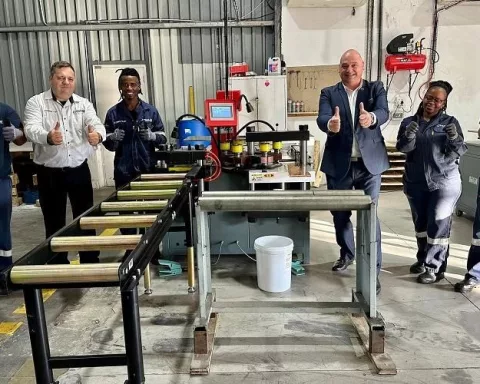Cape Town’s Mayor, Geordin Hill-Lewis, has announced that the city’s unemployment rate has dropped by four percentage points year-on-year, boasting the lowest unemployment rate among South Africa’s metros. Despite the progress, the Mayor acknowledged that much work remains in fostering further economic growth and alleviating poverty through job creation.
Positive Employment Growth for Cape Town
The latest Stats SA Quarterly Labour Force Survey (QLFS) for January to March 2023 confirms Cape Town’s unemployment rate at 26%, using the expanded unemployment definition. This rate is 0.9 percentage points lower than the previous quarter and four percentage points lower compared to Q1 2022, marking the fourth consecutive quarter of positive employment growth for the city.
During the first quarter of 2023, 40,000 additional Capetonians found employment, raising the city’s labour force to 1.7 million people. Surpassing pre-Covid levels, this milestone represents the highest employment figure in Cape Town since the QLFS report was initiated in 2008.
Investing to Maintain Economic Momentum
To maintain its economic momentum, Cape Town is investing heavily in various sectors. A R2.3 billion (approx. $157 million) plan to end load-shedding is underway, which will provide protection from the first four stages of Eskom’s blackouts within three years. Furthermore, the city plans to invest R43 billion (approx. $2.9 billion) in basic services infrastructure, surpassing that of Joburg and Durban combined, projected to create an estimated 135,000 jobs over the next three years.
Becoming the Easiest Place to Do Business in Africa
Aiming to become the easiest place to do business in Africa, Cape Town recently launched the Ease of Doing Business Index. This initiative focuses on minimizing costs, time, and bureaucracy for businesses in areas such as building plan approvals, basic service installations, and licensing.
Collaboration with Key Job-Creating Industries
The City’s Mayoral Committee Member for Economic Growth, Alderman James Vos, emphasized the importance of collaboration with key job-creating industries to help Capetonians access skill development and job opportunities. By working closely with diverse sectors, the city aims to build a skilled workforce and attract investment from both domestic and global corporations.
Since its establishment in 2017, the Investment Facilitation Branch has secured Cape Town investments worth over R34 billion (approx. $2.3 billion) and thousands of jobs. Additionally, the city’s small business support measures help local entrepreneurs access resources to survive and thrive.
Cementing Cape Town’s Position as a Leading City for Job Creation
While the decrease in Cape Town’s unemployment rate is certainly an achievement worth celebrating, there is still a long road ahead to ensure sustainable economic growth and job creation for all residents. Investments in infrastructure, ease of doing business, and collaboration with industries can undoubtedly help the city continue down this path. The continuous efforts from the government and private sectors will be essential in cementing Cape Town’s position as a leading city for job creation and economic development in South Africa and beyond.












